Life Lessons from Video Games

This article draws from thousands of real-life stories as well as beloved non-fiction works to reveal the consensus on how and why video games are good for you. Gaming is not without risks, such as addiction, but understanding the consensus about the benefits of video games may help you to discover the perfect role for games to play in your life.
Games Teach Time Management and Prioritization

In many games, as in real life, the clock ticks while competing demands vie for your attention. A Frontiers Psychology Study found that the game “Plan-it Commander” improves time management and planning skills in players.
Playing persona games helped me learn important time management skills for school.
Participating in games taught me to be efficient and avoid wasting time, similar to multitasking while getting ready in the morning.
I prioritize my time to balance work and hobbies by waking up early, working out, doing tasks, playing guitar, and gaming before bed.
The idea that games are a waste of time holds up only if you consider serious, deep learning a waste of time. “Take young kids playing Pokémon,” says Gee. “Pokémon is a game for five-year-olds, but it requires a lot of reading to play. And the text isn’t written for five-year-olds; it’s written at about a twelfth-grade level.”
Fortunately, games also offer one of the fastest ways to slow down and rest.
Gaming for Stress Relief
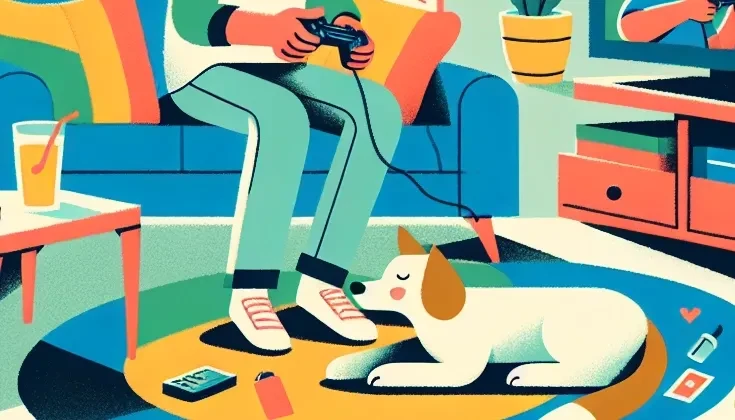
Playing video games can be a strategic way to avoid burning out before reaching the next level in life.
Taking breaks boosts productivity at work by preventing burnout.
Time is precious and the decisions we make shape our experiences. It's important to have a clear mind when making business decisions. Relaxing is key to good choices, and playing video games can be a valid way to unwind.
It's important to take breaks and relax to improve productivity and prevent burnout.
We can see how games could be a purposeful escape, a thoughtful and active escape, and most importantly, an extremely helpful escape.
Yet every hero must eventually put on their thinking cap and get back into the game.
Skills: Bringing the Virtual into the Real World
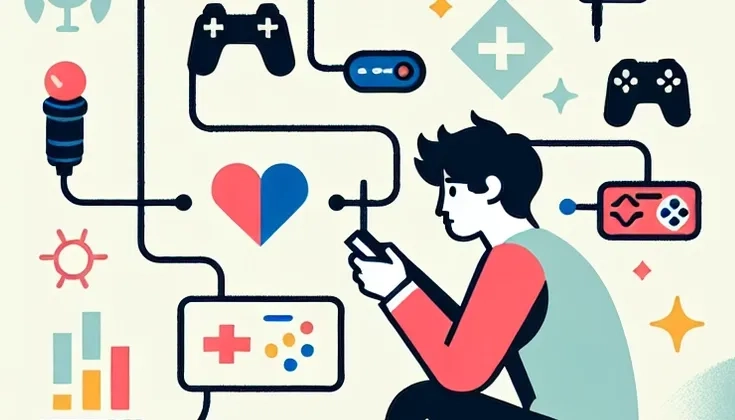
Real life is complicated and presents plenty of puzzles. Games help you refine your thinking skills in real time. In fact, multiple studies have found that playing video games can improve your cognitive abilities.
Managing a virtual city taught me about the intricacies of urban planning and resource allocation, skills I now bring to my job.
Learning the importance of routine and long-term planning helps me maintain discipline in my daily life and long-term investments.
Participating in high-pressure games has sharpened my decision-making skills under stress, which I find invaluable during workplace crises.
Studies have shown that games outperform textbooks in helping students learn fact-based subjects such as geography, history, physics, and anatomy, while also improving visual coordination, cognitive speed, and manual dexterity.
Video games may also improve mental health by reducing anxiety and stress.
Gaming and Mental Health

Playing video games offers a unique form of escapism that is more engaging and interactive than passive forms of entertainment like watching TV or movies.
Playing interactive stories can be more effective at providing escapism and reducing anxiety compared to watching TV or movies. It helps me make decisions and feel involved in the story.
Certain games provide therapeutic relief from daily stresses, while other games offer moments of excitement and escapism.
I watched a YouTube video discussing how some games can have therapeutic benefits. It mentioned studies showing improved coordination, memory, decision-making, and reaction speed for gamers.
In agonistic games, the participant must stretch her skills to meet the challenge provided by the skills of the opponents. The roots of the word “compete” are the Latin con petire, which meant “to seek together.” What each person seeks is to actualize her potential, and this task is made easier when others force us to do our best.
Video games can also boost social skills and encourage people to connect with one another, contradicting the myth of the lone gamer.
Better Social Skills and More Relationships
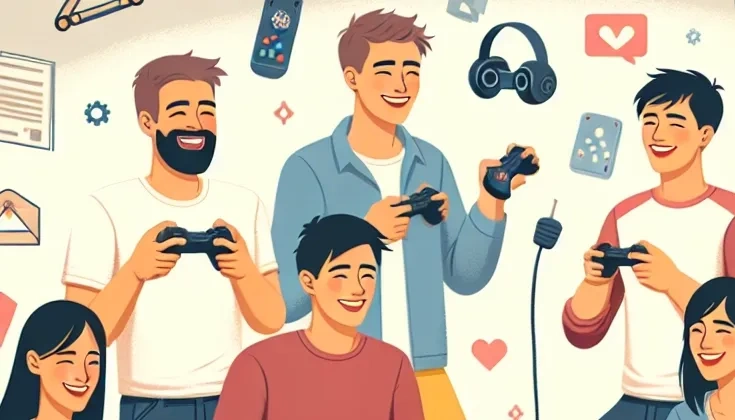
Research from the American Psychological Association finds that video games can provide several health and social benefits.
I can play games online with friends or find local co-op games, alternated with an hour of physical activity or chores.
Gaming is my main hobby and way to unwind, connecting me with old friends on chat rooms. It balances my demanding career that I love.
Playing games has always been a way for me and my dad to bond, and it's how my friends and I stay connected even as we have moved away after college.
Beautiful friendships are often based on the fact that the players complement each other with great economy and satisfaction, so that there is a maximum yield with a minimum effort from the games they play with each other.
In addition to skill enhancement and social benefits, video games often teach players practical lessons about how the world works.
Educational Benefits of Video Games
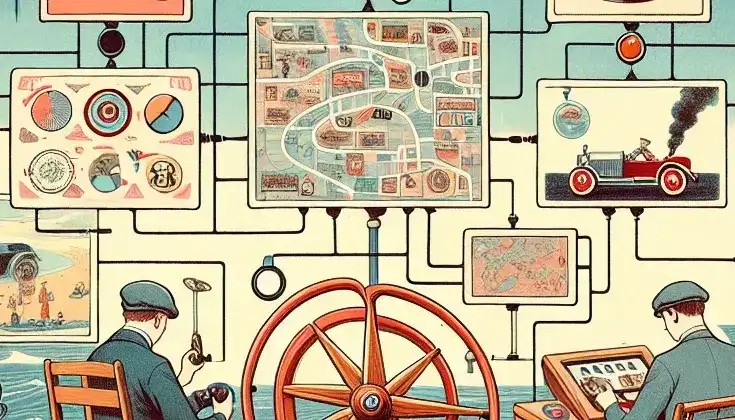
Video games can teach you about historical events and scientific principles, or simply improve everyday skills such as driving.
Playing a wide range of driving games helped me learn how to drive more easily.
One game taught me valuable lessons about markets, the economy, and supply chains.
My 6-year-old son is skilled at driving games with auto drive and smart steer features and can even win against computer opponents.
Raising children is primarily a matter of teaching them what games to play. Different cultures and different social classes favor different types of games, and various tribes and families favor different variations of these. That is the cultural significance of games.
Games may also impart financial wisdom with interactive lessons about money and how best to manage it.
Financial Wisdom Gained Through Gaming
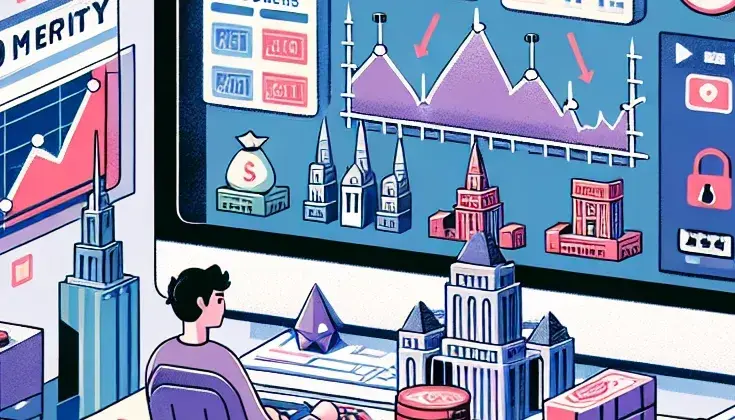
Video games often challenge you to manage various kinds of virtual currencies, which can translate into better habits when handling money in real-life.
I mastered managing my real-life expenses by handling virtual money in video games.
Playing when I was young taught me about managing money through earning, spending on items, and dealing with expenses like repairs and enhancements. I believe it was a valuable experience.
It taught me to make smart trading decisions and be cautious of scammers.
This sort of information gathering is precisely what we call play. And the important function of play is thus revealed: it permits us to gain, without any particular future application in mind, a holistic understanding of the world, which is both a complement of and a preparation for later analytical activities.
Games are not always easy to win and, as in real life, you must be resilient and persevere through many ups and downs.
Video Games Teach Resilience and Perseverance
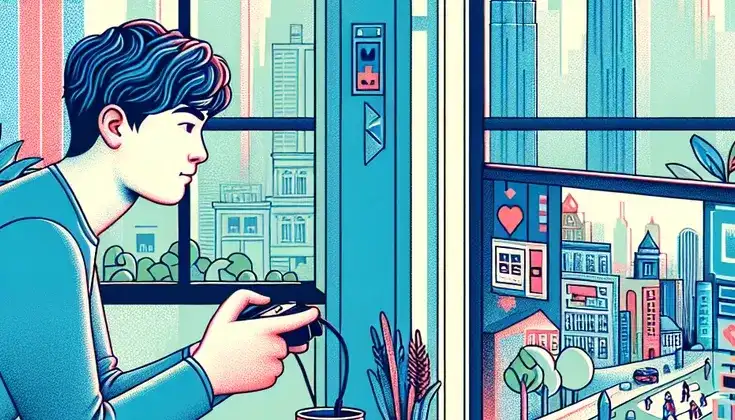
Video games have been shown in a systematic review to increase resilience to stress, as players face and learn to overcome challenges and failures.
I learned from playing games that facing challenges and overcoming them the right way is more satisfying than taking shortcuts to make things easier.
Playing taught me valuable life lessons on success, failure, perseverance, and self-improvement unlike any mentor or coach. It made me understand the essence of success and the importance of resilience in achieving goals.
I struggled with a boss at the end of a level, kept dying even after racing through. After taking a breather and pacing myself, I faced the boss more prepared and defeated it easily. A valuable lesson in problem-solving.
If changing strategies doesn’t help, you can try to change the game. And if that’s not possible, you can at least exercise some control over which games you choose to play. The road to hell is paved with intractable recursions, bad equilibria, and information cascades. Seek out games where honesty is the dominant strategy. Then just be yourself.
While gaming offers all of the above benefits, it’s important to remember that when gaming stops improving your real life, it is time to hit pause.
Balancing Gaming with Responsibilities is Crucial

Gaming does not come without risks including addiction. Structured gaming schedules, for example, can help to keep gaming from becoming too consuming.
To balance gaming and responsibilities, I set specific gaming hours after completing important tasks.
I've limited gaming to weekends and focus on exercise during the week. Gaming can be toxic at times, so it's good to take a break.
When a game stops being fun and becomes a grind, that's when it's time to reconsider. Having a non-productive hobby is okay as long as it brings happiness.
One cannot rely solely on games and art to improve the quality of life. To achieve control over what happens in the mind, one can draw upon an almost infinite range of opportunities for enjoyment—for instance, through the use of physical and sensory skills ranging from athletics to music to Yoga, or through the development of symbolic skills such as poetry, philosophy, or mathematics.
Conclusion
As shown throughout this article, the consensus is that gaming can play a significant role in developing essential life skills. From improving problem-solving abilities and strategic planning to improving financial acumen and managing stress, the virtual challenges faced while gaming often mirror the complexities of real-life situations. Whenever the virtual enhances the real, instead of replacing it, it is undeniable that gaming is good for you.
Subscribe for More Insights
Subscribe to Times Meter below to be notified about upcoming articles.
